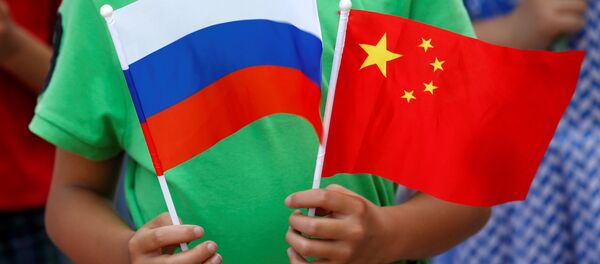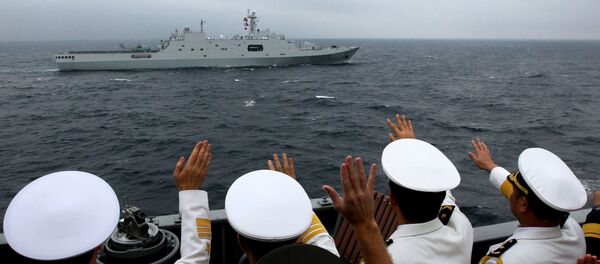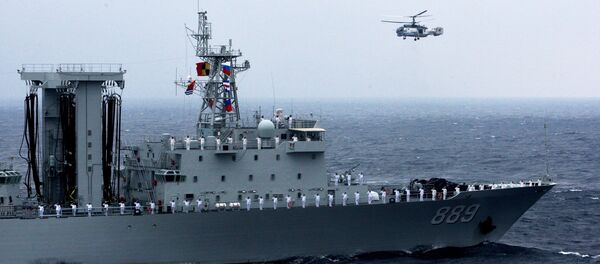On the eve of his bilateral summit with his Chinese counterpart Xi Jinping, US President Barack Obama criticized Beijing for what he called "muscle-flexing" in the South China Sea in an interview with CNN.
"Where we see them [Beijing] violating international rules and norms, as we have seen in some cases in the South China Sea or in some of their behavior when it comes to economic policy, we've been very firm. And we've indicated to them that there will be consequences," Obama told the media outlet.
Not only did China reject to obey the ruling, but a number of other claimants demonstrated their unwillingness to ruin their relations with Beijing.
"Vietnam… rounded up anti-Chinese demonstrators and vowed to strengthen its partnership with Beijing on the sidelines of an Asia-Europe Meeting. Indonesia eagerly embraced a Chinese proposal to develop a US$100 million investment zone. Singapore showed itself keen on more cooperation in banking and high-speed railway building," Jonathan Holslag of Free University Brussels noted in his article for the South China Morning Post, calling the ruling a "textbook example of the limitations of international justice."
On the other hand, US FONOP maneuvers in the South China Sea have not provoked Beijing into overreacting.
To what extent may Washington go to preserve its hegemony in the region?
"The question arises because over the past few months Washington has appeared to be warning, by word and deed, that it would be willing to use armed force to stop Beijing tightening its grip on the South China Sea," Hugh White, professor of strategic studies at the Australian National University in Canberra, writes in his op-ed for The National Interest.
Do Obama's words "that there will be consequences" for China's "aggressive" behavior in the South China Sea mean the US is willing to fight China to preserve its primacy in Asia?
The academic points out that "there is little chance of a quick, cheap, clean victory" for Washington in the event of the Sino-American military conflict. Moreover, the conflict would deal a heavy blow to the US economy and would be far worse than the Global Financial Crisis of 2008. Needless to say, the American electorate would hardly endorse such developments.
After the end of the Cold War the had enjoyed its position as an uncontested military hegemon facing a little if any risk in key regions like Asia, Europe and the Middle East.
However, the situation has changed and now the US is facing "a classic contest of power politics as it seeks to defend its place in the regional order against a very formidable rival" in Asia.
White asks: Could America remain secure and prosperous at home without being the dominant power in Asia and is that dominance so important as to justify the immense cost of a war with China?
The professor believes that Washington should be very careful about issuing warnings to China about its willingness to use armed forces in the South China Sea.
"If it is not willing to go to war, it should stop bluffing," the Australian academic stresses.
"And if it is, it should make that absolutely and unmistakably clear, so that Beijing can be in no doubt. The present ambiguity about America's resolve is the most dangerous possible situation," he adds.





